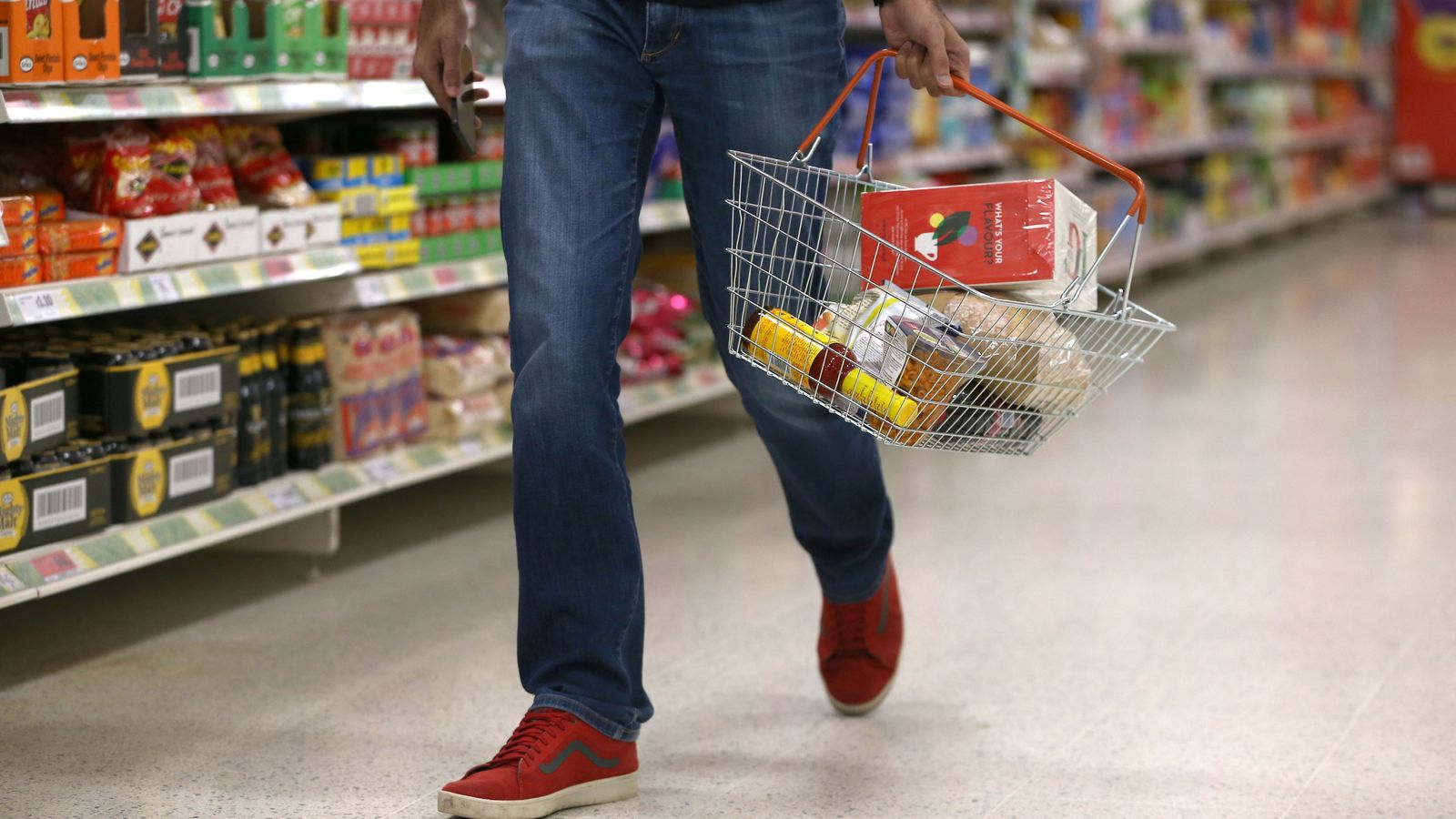Shoppers saw food prices rocket by 11.6% over the past month – the fastest rate since at least 2008 – adding the equivalent of £533 to the average annual grocery bill, industry data shows.
Market research firm Kantar said the inflation hike for the four weeks to 7 August was the biggest it had recorded since it started tracking supermarket prices in this way 14 years ago.
As a result, it reported sales of own-label value products increased by almost a fifth – 19.7% – as people sought to drive down the cost of their weekly shop.
Wages slump but chancellor talks of ‘good news’ – Cost of living latest
The figures are further evidence of the mounting cost of living crisis, underlined by separate official data that revealed workers had suffered a record real-term pay slump in the face of soaring prices.
Fraser McKevitt, head of retail and consumer insight at Kantar, said: “As predicted, we’ve now hit a new peak in grocery price inflation, with products like butter, milk and poultry in particular seeing some of the biggest jumps.
“This rise means that the average annual shop is set to increase by a staggering £533, or £10.25 every week, if consumers buy the same products as they did last year.
Cost of living: Workers suffer record pay slump in face of rocketing inflation
Cost of living crisis: Families underestimating how much energy bills will rise, research shows
Nationwide offers 11,000 workers a £1,200 bonus to help with bills
“It’s not surprising that we’re seeing shoppers make lifestyle changes to deal with the extra demands on their household budgets.
“Over the past month we’ve really seen retailers expand and advertise their own value ranges across the store to reflect demand.”
It came as overall supermarket sales rose by 2.2% in the 12 weeks to 7 August.
Read more:
What is causing rising energy prices?
Who is proposing what to tackle soaring energy bills?
Experts said consumers were now shopping around more and switching supermarkets in response to the spending squeeze.
Discount chain Lidl remained Britain’s fastest growing grocer over the 12 weeks with sales up 17.9%.
Rival German discounter Aldi also performed strongly, reporting 14.4% growth, as customers were attracted to the two firms’ cheaper product lines.
Subscribe to the Daily podcast on Apple Podcasts, Google Podcasts, Spotify, Spreaker
Tesco was the strongest performer among the UK’s biggest grocery chains, reporting 1% growth.
Meanwhile, Asda saw sales increase by 0.2% and Sainsbury’s recorded a 0.1% dip.
The worst performer of the big four was Morrisons, which saw sales decline by 4.9%.
The recent heatwaves also resulted in a surge in sales of soft drinks, ice cream and summer clothes, according to Kantar.







